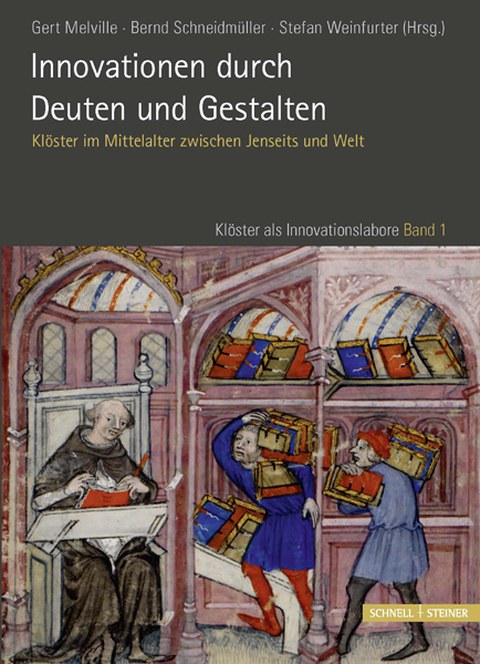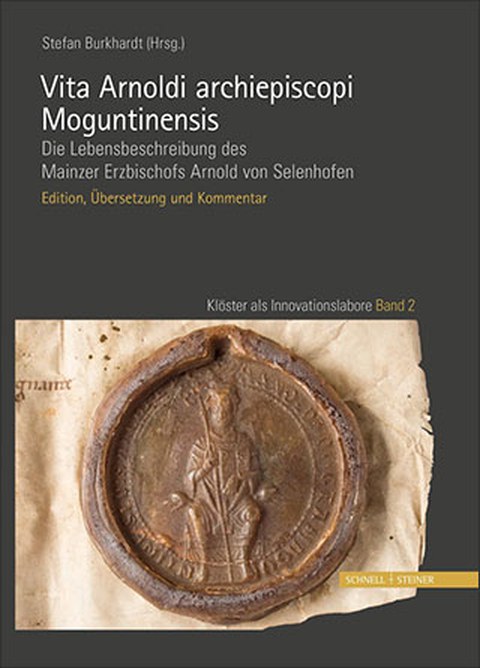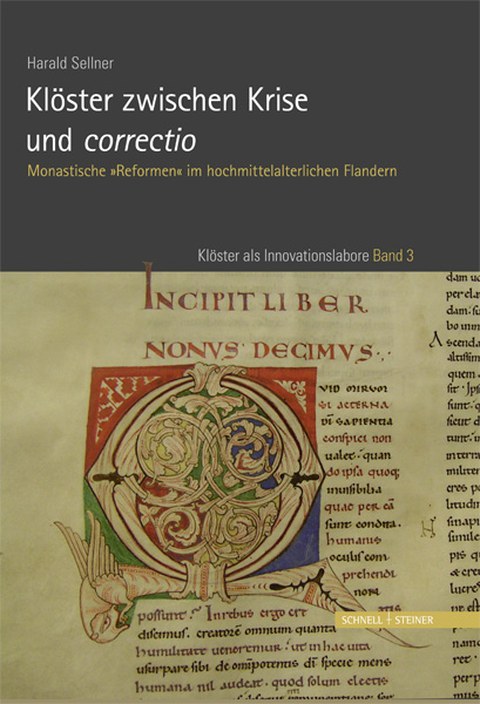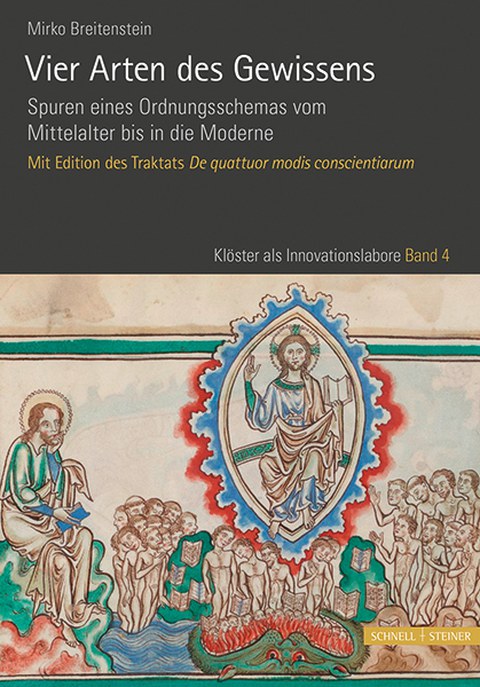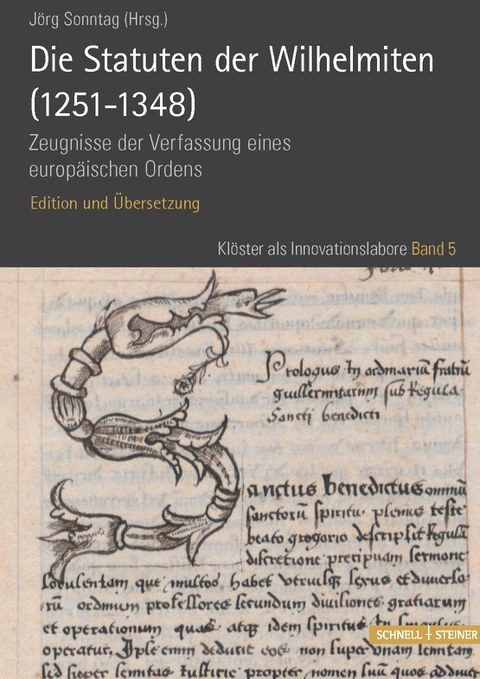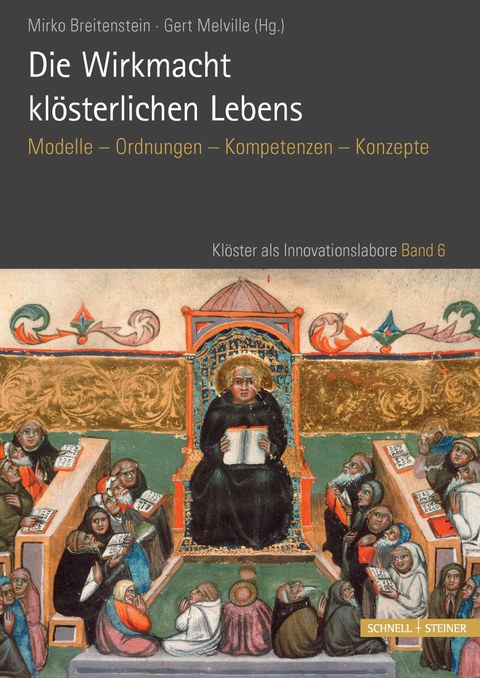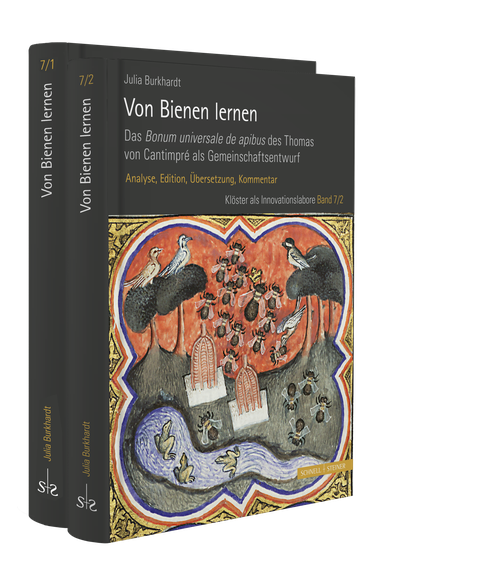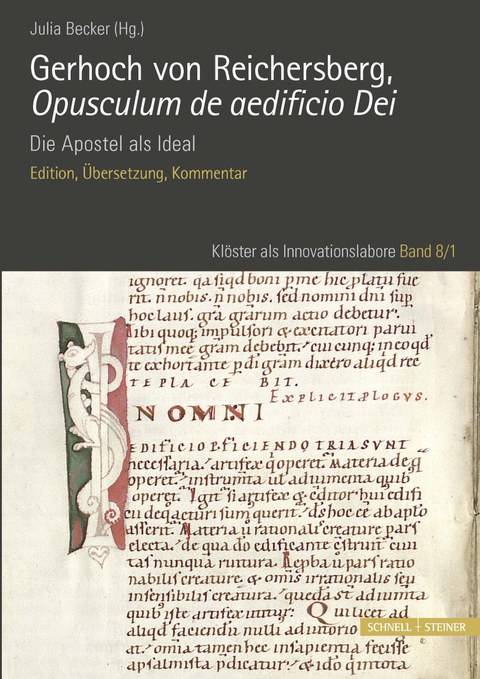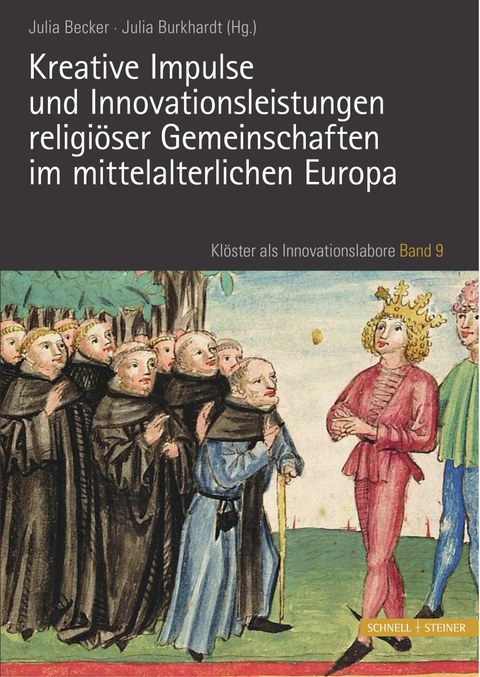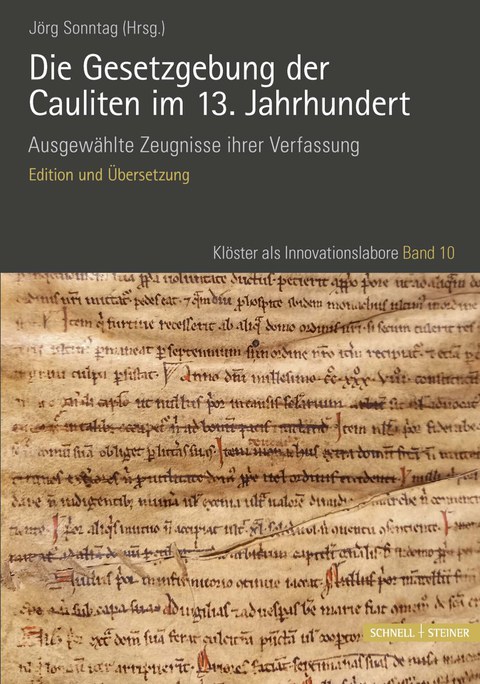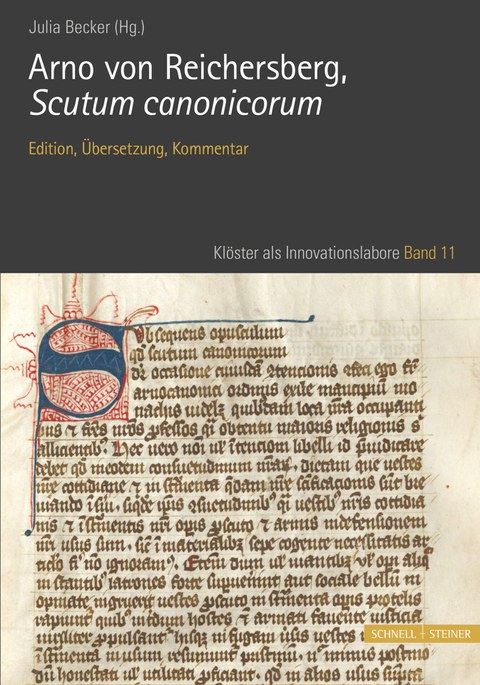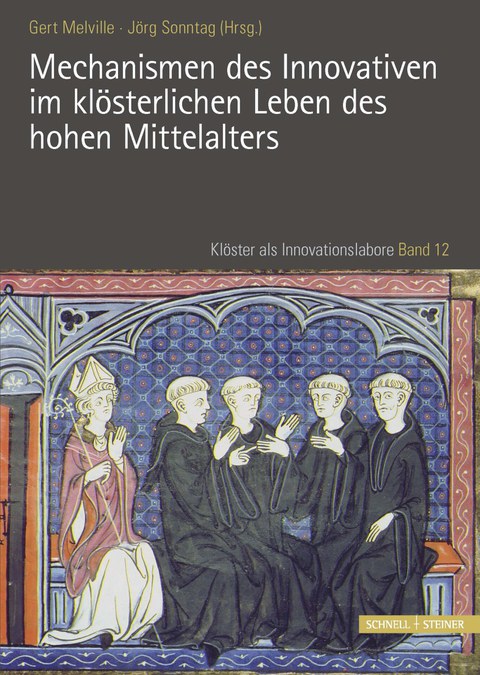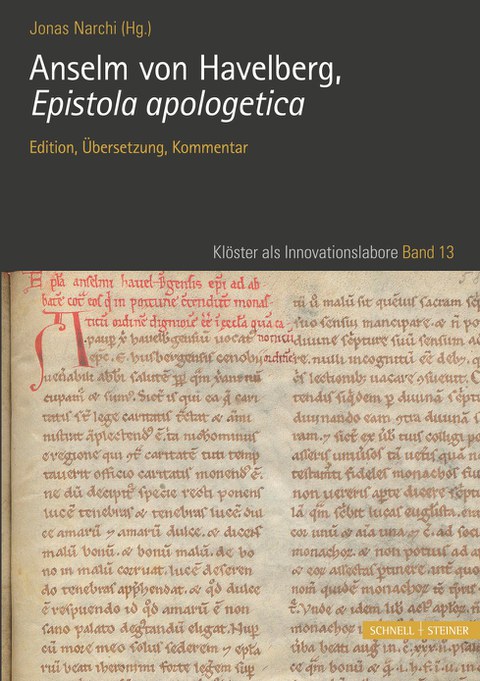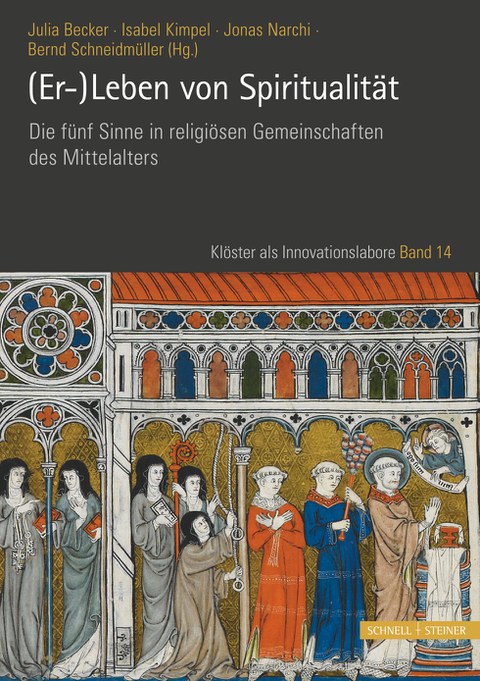Monasteries in the High Middle Ages. Laboratories of Innovation for European Designs of Life and Models of Order
Project manager: Prof. Dr. Dr. h.c. Gert Melville
Supervisors: PD Dr. Jörg Sonntag (Head of Unit) and Dr. des. Marcus Handke
During the social and religious changes of the 11th to 13th centuries, medieval monasteries developed an unprecedented rationality in the organization of life. At that time, models of social and cultural awakening emerged from which the specific configurations of order of European modernity were formed.
The project, which is supported by the Union of the German Academies of Sciences and Humanities and runs from January 1, 2010 to December 31, 2024, has set itself the goal of researching these foundations of European culture. The part of the project based at FOVOG from January 1, 2011 is a research unit of the Saxon Academy of Sciences in Leipzig. There is a direct connection with another research unit of the project section, which is supported by the Heidelberg Academy of Sciences and Humanities (under the direction of Prof. Dr. Bernd Schneidmüller and Prof. Dr. Stefan Weinfurter) and is based at the Ruprecht-Karls-Universität Heidelberg.
The project aims to combine text-oriented basic research with a cultural studies perspective in order to develop and analyze important sources and make them accessible to the public in editions. The focus will be on texts in which the social interpretative power of the monasteries becomes programmatically tangible in a particular way: Exhortations and didactic tracts, monastic or religious rules and statutes as well as their commentaries, which determined the legal order of the communities. Such writings were intended to have an internal effect and yet were always also related to the world and had an impact here.
The research of the Dresden research center will focus on the one hand on the normative structures of monastic life during the 11th to 13th centuries. The focus will be on the establishment of such structures, through which new forms of social constitution were developed; on the other hand, the question of how individuals related to the new organizational structures and at the same time shaped them themselves will be investigated. It is therefore essentially about the redefinition of the relationship between the individual and the community and the resulting developments towards new lifestyles and models of order. This project is complemented by the research of the Heidelberg research center, which, with the same questions and tasks, is dedicated to works of world interpretation and such designs that conveyed configurations of order and constructions of meaning into the world and sought to assert them.
Publications
as part of the project's own series "Monasteries as innovation laboratories" (Verlag Schnell und Steiner, Regensburg)
Gert Melville, Bernd Schneidmüller and Stefan Weinfurter (eds.)
Innovations through interpretation and design. Monasteries in the Middle Ages between the Beyond and the World (Monasteries as Innovation Laboratories. Studies and Texts 1), Regensburg 2014.
Online access
Stefan Burkhardt (ed.)
Vita Arnoldi archiepiscopi Moguntinensis. The biography of Archbishop Arnold von Selenhofen of Mainz. Edition, translation and commentary (Klöster als Innovationslabore. Studien und Texte 2), Regensburg 2014.
Online access
Harald Sellner
Monasteries between Crisis and Correctio. Monastic "Reforms" in High Medieval Flanders (Monasteries as Innovation Laboratories. Studies and Texts 3), Regensburg 2016.
Mirko Breitenstein
Four types of conscience. Traces of a Scheme of Order from the Middle Ages to the Modern Age (Monasteries as Innovation Laboratories. Studies and Texts 4), Regensburg 2017.
Jörg Sonntag (ed.)
The Statutes of the Wilhelmites (1251-1348). Testimonies to the constitution of a European order.
Edition and translation, KAI 5, 2019.
Mirko Breitenstein | Gert Melville (ed.)
The power of monastic life. Models - Orders - Competencies - Concepts, KAI 6, 2020.
Julia Burkhardt
Learning from bees. The Bonum universale de apibus by Thomas of Cantimpré as a community draft
(analysis, edition, translation, commentary), KAI 7, 2020.
Julia Becker (ed.)
Gerhoch von Reichersberg, Opusculum de aedificio Dei. Die Apostel als Ideal (edition, translation, commentary), using the German translation by Thomas Insley, KAI 8, 2020.
Julia Becker | Julia Burkhardt (ed.)
Creative impulses and innovative achievements of religious communities in medieval Europe, KAI 9, 2021 .
Jörg Sonntag (ed.)
The legislation of the Caulites in the 13th century, KAI 10, 2022.
Julia Becker (ed.)
Arno von Reichersberg, Scutum canonicorum (edition, translation, commentary), KAI 11, 2022.
Jörg Sonntag | Gert Melville (ed.)
Mechanisms of Innovation in Monastic Life in the High Middle Ages, KAI 12, 2023
Jonas Narchi (ed.)
Anselm of Havelberg, Epistola apologetica
Edition, translation, commentary
Julia Becker | Isabel Kimpel | Jonas Narchi | Bernd Schneidmüller (eds.)
(Living and experiencing spirituality
The five senses in medieval religious communities
as part of the series "Vita regularis. Abhandlungen" (LIT-Verlag, Berlin)
- Jörg Sonntag (ed.): Sermones in Regulam s. Benedicti. A Cistercian commentary on rules from Pontigny (Vita regularis. Editions 6), Berlin 2016.
- Spirit and form. Monastic spatial concepts as forms of expression of religious guiding ideas in the Middle Ages, ed. by Jörg Sonntag with the collaboration of Petrus Bsteh, Brigitte Proksch and Gert Melville (Vita regularis. Abhandlungen 69), Berlin 2016.
- Identity and community. Four approaches to self-histories and self-images of institutional orders, ed. by Mirko Breitenstein, Julia Burkhardt, Stefan Burkhardt and Jörg Sonntag (Vita regularis. Abhandlungen 67), Berlin 2016.
- The Franciscan monasteries in the Middle Ages. Räume, Nutzungen, Symbolik, ed. by Gert Melville, Leonie Silberer and Bernd Schmies (Vita regularis. Abhandlungen 63), Berlin 2015.
- Rules and observance. Devising forms of communal life, ed. by Mirko Breitenstein, Julia Burkhardt, Stefan Burkhardt and Jens Röhrkasten (Vita Regularis. Abhandlungen 60), Berlin 2014.
- Innovation in monasteries and orders of the High Middle Ages. Aspekte und Pragmatik eines Begriffs, ed. by Mirko Breitenstein, Stefan Burkhardt and Julia Dücker (Vita regularis. Abhandlungen 48), Berlin 2012.
- G. Melville, J. D. Mixson (eds.), Virtuosos of Faith. Monks, Nuns, Canons, and Friars as Elites of Medieval Culture, vol. 78, 2020.
- M. Breitenstein, G. Melville (eds.), Between Community and Seclusion. Defining the Religious Life in the South Asian Traditions, in Buddhism, and in Eastern and Western Christianity, vol. 79, 2021.
- M. Jerkovic, G. Melville, B. Schneidmüller, J. Sonntag (eds.), Consensus and Dissent in Medieval Monasteries and Orders, 2024 [in preparation].
Events within the framework of the project
From September 19 to 21, 2011, the 1st study week of the project on the topic "Innovation in monasteries and orders of the High Middle Ages - aspects and pragmatics of a concept" took place at the FOVOG: Program / Flyer.
From 4 to 6 October 2012, the Heidelberg Academy of Sciences and Humanities and the Saxon Academy of Sciences and Humanities in Leipzig organized the conference "Innovationen durch Deuten und Gestalten. Monasteries in the Middle Ages between the Beyond and the World" in Mainz: Program.
From 14 to 16 April 2013, the Forum for World Religions, the project "Monasteries in the High Middle Ages" at the Saxon Academy of Sciences in Leipzig and the Research Center for Comparative History of Religious Orders at the Johannes-Schlößl of the Pallottines organized the conference "Geist und Gestalt. Monastic spatial concepts as forms of expression of religious guiding ideas": Program and pictures of the conference can be found here.
From 19 to 21 September 2013, the Saxon Academy of Sciences in Leipzig and the Research Center for Comparative History of Religious Orders, in cooperation with the Heidelberg Academy of Sciences and Humanities, organized the 2nd study week of the project entitled "Identity and Community" in Heidelberg: Program.
From 14 to 16 November 2013, the project held a workshop on "New aspects of the structured documentation of variable texts" at the FOVOG premises: Program.
From 6 to 8 April 2016, the project held a conference at Nimbschen Monastery on the topic of "The power of monastic life in the Middle Ages: models - orders - competencies - concepts" : Program.
From 11 to 13 February 2019, an international conference was held at the Heidelberg Academy of Sciences and Humanities on the topic:"Creative Impulses: Innovation and Transfer Achievements of Religious Communities in Medieval Europe" . Program
From 28 to 29 October 2021, an international conference on the topic: "Authority and Consent in Medieval Religious Communities" took place at the University of Zagreb. Program
From 23 to 25 June 2022, an international conference was held at Scheyern Monastery on the topic: "Mechanisms of Innovation in Monastic Life in the High Middle Ages". Program
From June 14-16, 2023, an international conference was held at the Heidelberg Academy of Sciences and Humanities on the topic "(Living) Spirituality. The five senses in religious communities of the Middle Ages." Program
A conference report is available online. report
Staff contact
Prof. Dr. Dr. h.c. Gert Melville:
Email: gert.melville(at)tu-dresden.de
PD Dr. Jörg Sonntag:
Email: joerg.sonntag(at)tu-dresden.de

